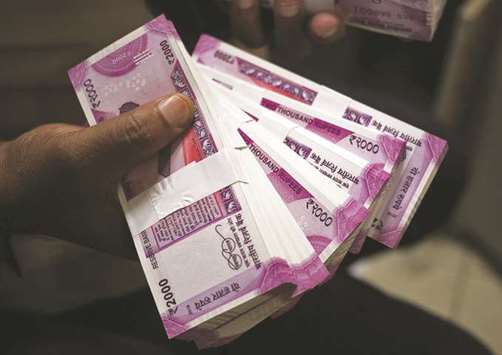Indian shares declined, with the benchmark gauges extending their retreat to a third straight day. The equity indexes erased the gains they held through the day in the last half an hour.
The benchmark Sensex index fell 0.21% or 71.07 points to 33,703.59, taking its February slide to 6.3%, putting it on course for the worst monthly performance in two years. So far this year, Sensex has fallen 0.83%.
Mahindra & Mahindra’s 2.2% fall was the steepest among Sensex members after the car-and-tractor maker said on Monday it will invest an additional Rs5bn ($77mn) on electric vehicles.
Sentiment toward Indian stocks soured this month as investors assess the impact of a long-term capital gains tax on equities along with a decision by Indian exchanges to end licensing accords with counterparts abroad, and an almost $2bn bank fraud engulfing state-owned lenders.
“Higher valuations are a challenge and rising volatility can be worrisome if there’s a downward bias in the market,” said Sampath Reddy, chief investment officer at Pune-based Bajaj Allianz Life Insurance Co.
“Factors such as the impact of tax on equities, the dispute with SGX and MSCI, bad-loan problems of banks are weighing on investor minds and leading toward negative sentiment,” he said.
The NSE Nifty 50 Index dropped 0.2% — closing a second straight session below its 100-day moving average — a trend line that has supported its rally for more than a year.
The last time it fell below the mean was in November 2016, when it went on to decline more than 7%.
Meanwhile the rupee weakened to a three-month low, while government bond yields rose to a near two-year high on weak global as well as domestic cues.
The home currency ended at 64.79 — a level last seen on November 22, 2017, down 0.89% from its previous close of 64.22.
The local currency opened at 64.49 and touched a low of 64.86 a dollar.
Yields on 10-year bond gained nearly 10 basis points to close at 7.673%, a level last seen on 26 February 2016, compared to its Friday’s close of 7.578%. Bond yields and prices move in opposite directions. Currency and bond markets were closed on Monday for a holiday. On domestic front, foreign investors started selling following a disappointing budget with higher fiscal deficit target, widened traded deficit data and the $1.8bn Punjab National Bank scam that may turned in to a contagion.
In last eight trading sessions, FIIs have sold nearly $1.4bn in local equity markets. Globally, concerns about rising US treasury yields and higher crude oil prices worried traders.
Traders are now keeping watch on US federal reserve minuets which is due today for more clarity on the central bank’s rate hike path.
“Movements in the Indian bond and currency markets are primarily taking direction from global cues, with the US dollar supported by expectations for a rate hike in the US next month, while reflation trades continue to drive US yields higher”, said Radhika Rao economist at DBS Bank.
“Domestically, while much of the negativity is already in the price, the risk factors are still to dissipate, which has marked a floor for the local bond yields”, Rao added. So far this year, rupee has weakened 1%, while FIIs have bought $1.02bn in equity and $1.85bn in debt markets.

The rupee closed at 64.79 per dollar yesterday, a level last seen on November 22, 2017, down 0.89% from its previous close of 64.22
